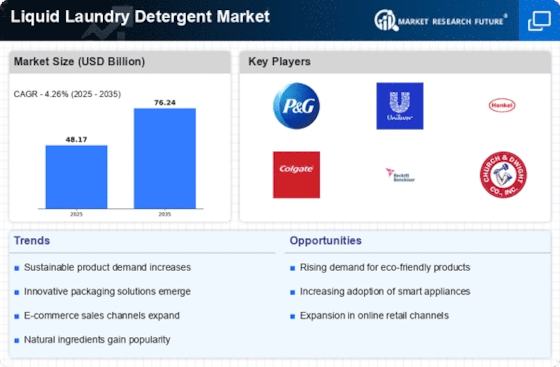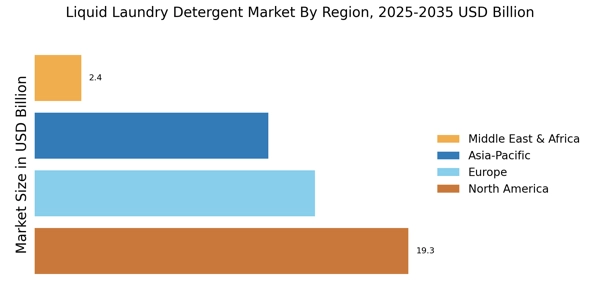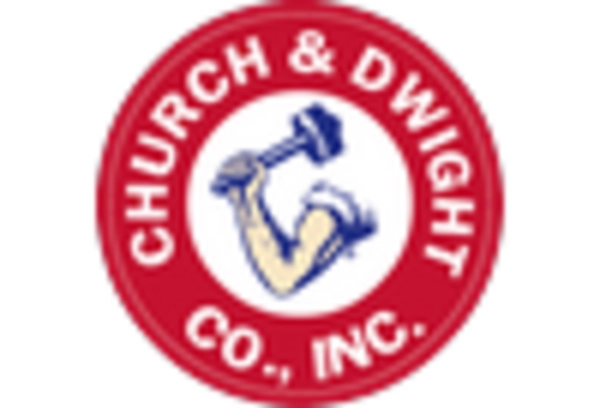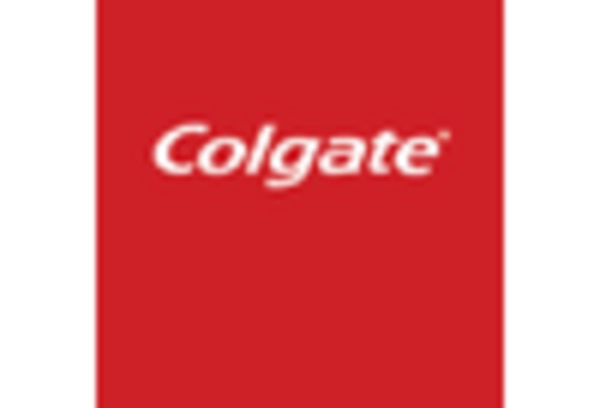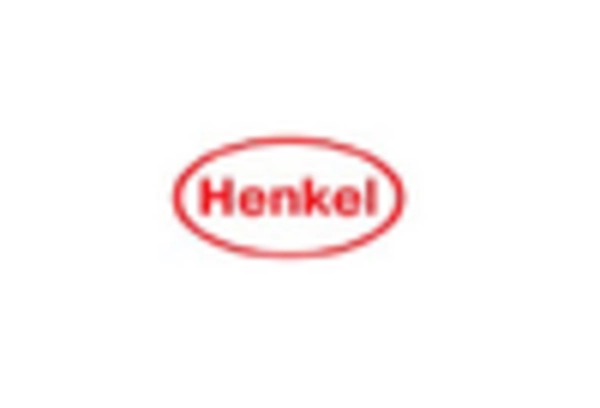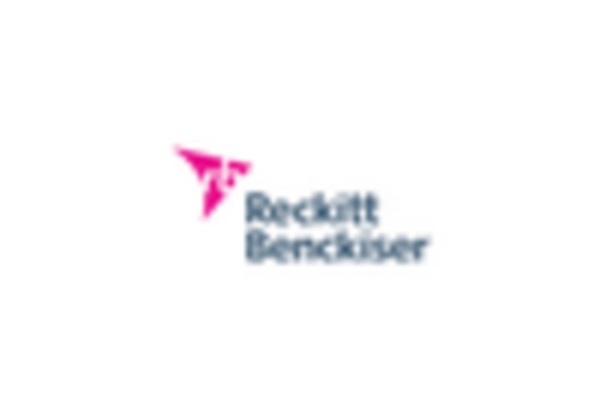E-commerce Growth
The rapid growth of e-commerce is reshaping the Liquid Laundry Detergent Market. Online shopping platforms have become increasingly popular, providing consumers with greater access to a variety of products. Data shows that online sales of laundry detergents have surged by 25% in the past year, driven by convenience and the ability to compare products easily. This shift has prompted traditional retailers to enhance their online presence and offer competitive pricing. As e-commerce continues to expand, brands that effectively leverage digital marketing strategies are likely to capture a larger audience in the Liquid Laundry Detergent Market.
Sustainability Initiatives
The Liquid Laundry Detergent Market is increasingly influenced by sustainability initiatives. Consumers are becoming more environmentally conscious, leading to a demand for eco-friendly products. This shift is reflected in the growing popularity of biodegradable detergents and those packaged in recyclable materials. According to recent data, the market for sustainable laundry products is projected to grow at a compound annual growth rate of 8% over the next five years. Companies are responding by reformulating their products to reduce environmental impact, which not only meets consumer expectations but also aligns with regulatory pressures aimed at reducing plastic waste. As a result, brands that prioritize sustainability are likely to gain a competitive edge in the Liquid Laundry Detergent Market.
Technological Advancements
Technological advancements play a pivotal role in shaping the Liquid Laundry Detergent Market. Innovations in formulation chemistry have led to the development of more effective cleaning agents that work efficiently in cold water, thereby saving energy. Furthermore, the introduction of smart packaging solutions, such as dosage dispensers, enhances user convenience and reduces waste. Market data indicates that the adoption of such technologies is expected to increase by 15% in the coming years, as consumers seek products that offer both performance and ease of use. This trend suggests that companies investing in research and development are likely to capture a larger share of the Liquid Laundry Detergent Market.
Health and Hygiene Awareness
Health and hygiene awareness is a crucial driver in the Liquid Laundry Detergent Market. The increasing emphasis on cleanliness and sanitation has led consumers to prioritize products that ensure thorough cleaning and germ elimination. This trend is particularly evident in households with children or individuals with allergies, where the demand for hypoallergenic and antibacterial detergents is on the rise. Market Research Future indicates that sales of such specialized products are expected to grow by 12% annually. Consequently, manufacturers are focusing on developing formulations that not only clean effectively but also promote health and safety, thereby aligning with consumer expectations in the Liquid Laundry Detergent Market.
Changing Consumer Preferences
Changing consumer preferences significantly impact the Liquid Laundry Detergent Market. There is a noticeable shift towards liquid detergents over powder forms, attributed to their ease of use and better solubility in water. Recent surveys indicate that approximately 70% of consumers prefer liquid detergents, which has prompted manufacturers to focus on this segment. Additionally, the rise of specialized products, such as those designed for sensitive skin or specific fabric types, reflects a growing demand for tailored solutions. This trend indicates that brands that adapt to evolving consumer needs are likely to thrive in the competitive landscape of the Liquid Laundry Detergent Market.


